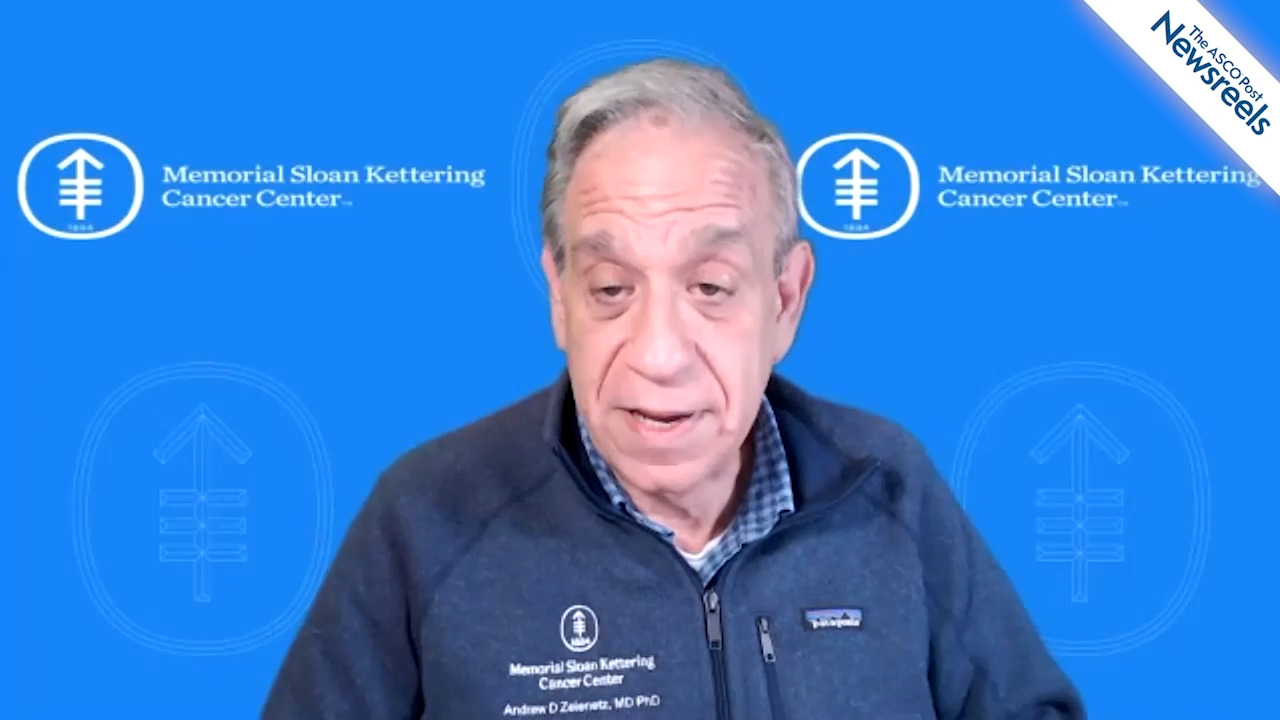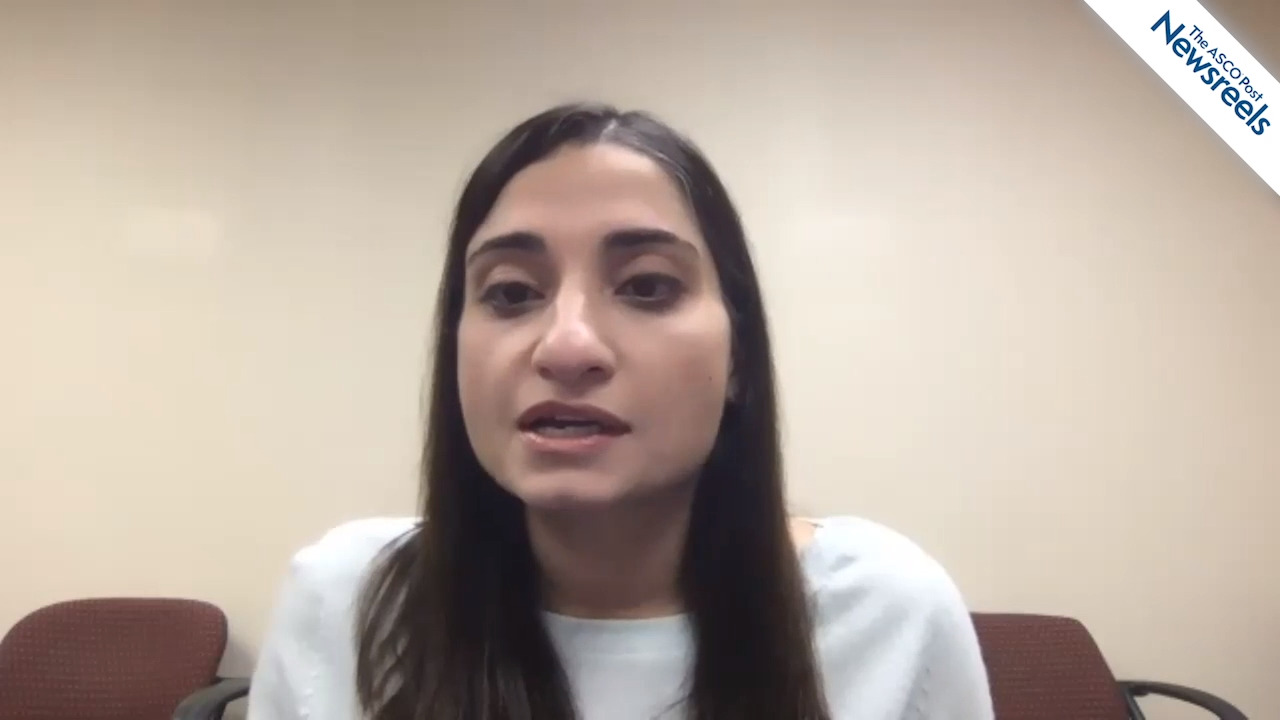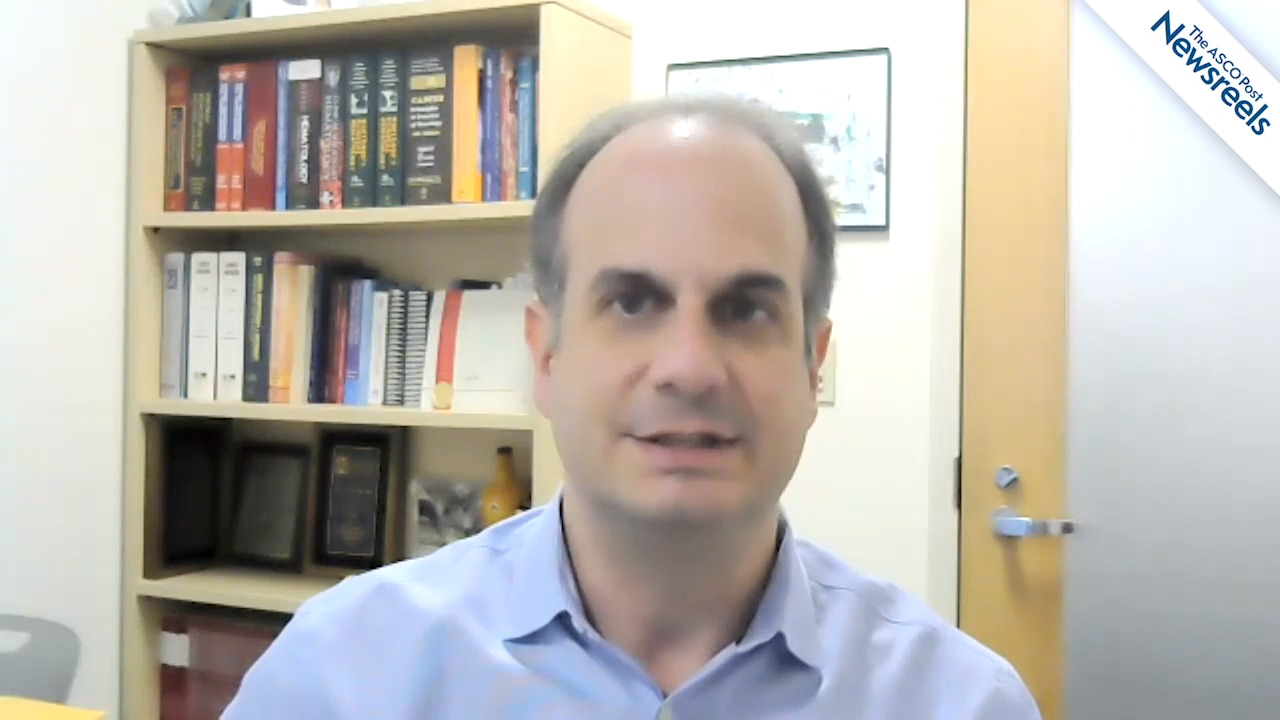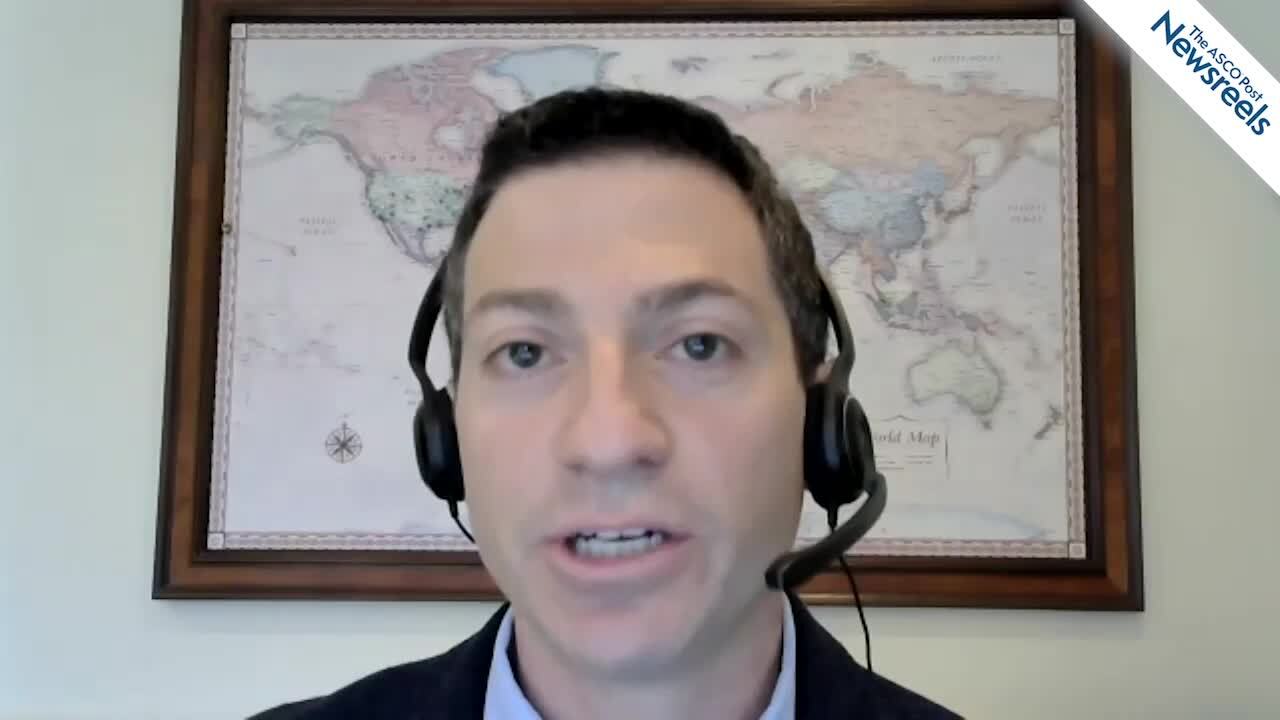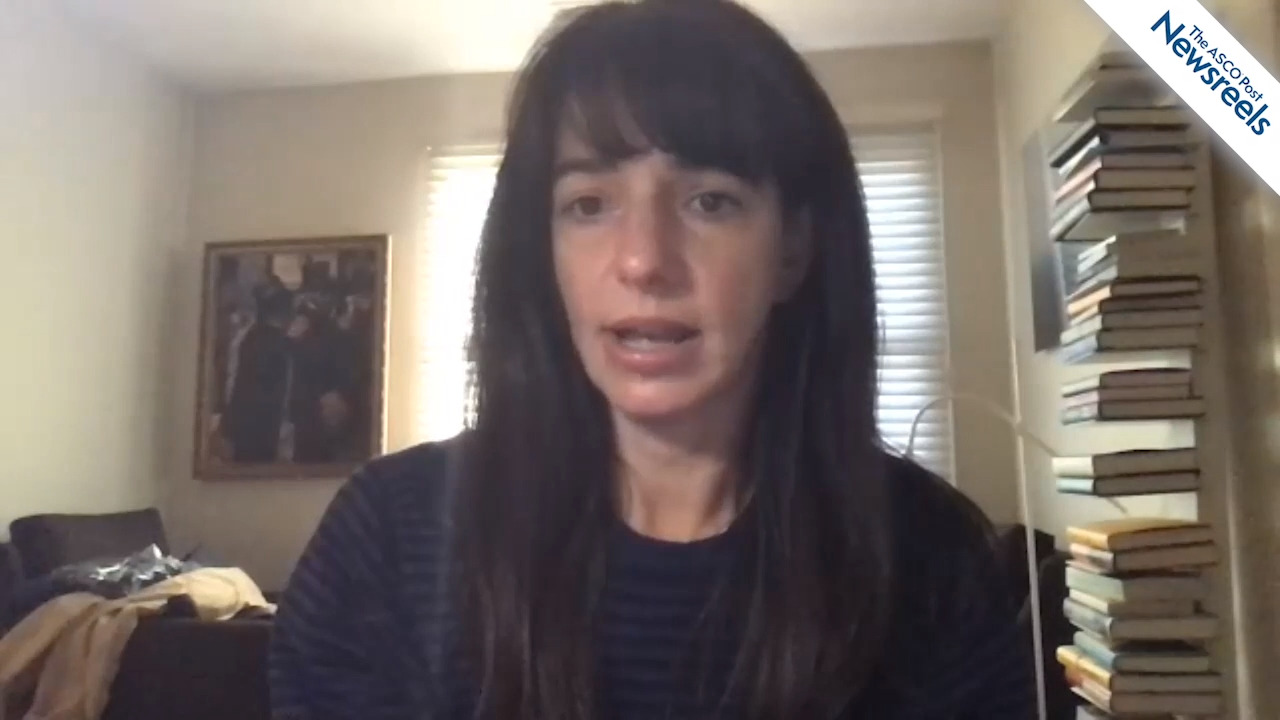Tycel J. Phillips, MD, on Marginal Zone Lymphoma: Efficacy and Safety of Parsaclisib
2020 ASH Annual Meeting & Exposition
Tycel J. Phillips, MD, of the University of Michigan Rogel Cancer Center, discusses phase II data from the CITADEL-204 study, showing that patients with relapsed or refractory marginal zone lymphoma who were not previously treated with a Bruton’s tyrosine kinase inhibitor achieved rapid and durable responses with single-agent parsaclisib. Comparable results were also observed in patients with nodal, extranodal, or splenic disease (Abstract 338).
The ASCO Post Staff
Andrew D. Zelenetz, MD, PhD, of Memorial Sloan Kettering Cancer Center, offers his expert views on five treatment studies in mantle cell lymphoma focusing on the next-generation BTK inhibitor LOXO-305; lisocabtagene maraleucel; minimal residual disease monitoring following autologous stem cell transplantation with or without rituximab maintenance; the antibody-drug conjugate VLS-101; and venetoclax, lenalidomide, and rituximab (Abstracts 117, 118, 120, 121, 122).
The ASCO Post Staff
Sara Zarnegar-Lumley, MD, of Vanderbilt University Medical Center, discusses an analysis of a large cohort confirming the age-associated prevalence of IDH mutations in patients, across the age spectrum, with acute myeloid leukemia and therapeutic implications. IDH-mutated genes were found to co-occur frequently with other mutations, some of which favorably impact outcomes in patients younger than 60 (Abstract 388).
The ASCO Post Staff
Corey Cutler, MD, MPH, of Dana-Farber Cancer Institute, discusses results from a multicenter trial that compared reduced-intensity allogeneic hematopoietic cell transplantation to hypomethylating therapy or best supportive care in patients aged 50 to 75 with advanced myelodysplastic syndromes (Abstract 75).
The ASCO Post Staff
Matthew S. Davids, MD, of Dana-Farber Cancer Institute, summarizes three key studies from a session he co-moderated on ibrutinib plus venetoclax for first-line treatment of patients with chronic lymphocytic leukemia (CLL) and small lymphocytic lymphoma (SLL), long-term responses to these agents for relapsed and refractory CLL, and undetectable minimal residual disease following fixed-duration treatment with venetoclax and rituximab for CLL (Abstracts 123, 124, and 125).
The ASCO Post Staff
Caron A. Jacobson, MD, of the Dana-Farber Cancer Institute, discusses results from the ZUMA-9 C2 study, an ongoing trial that is exploring axicabtagene ciloleucel in patients with relapsed or refractory large B-cell lymphoma (Abstract 2100).
